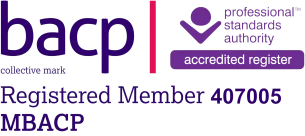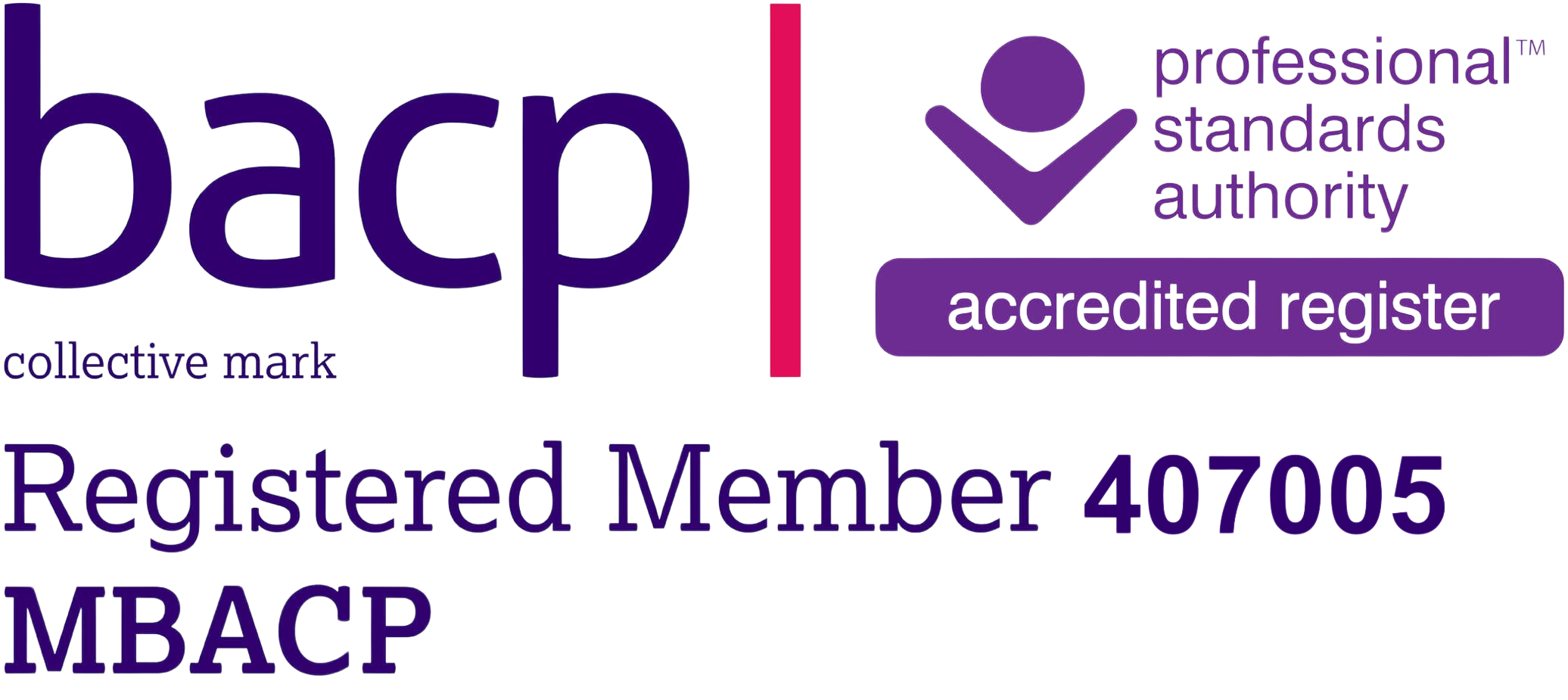Welcome to Therapy Bloom
Anxiety specialist offering sessions in Leamington Spa and online.
Hello, my name is James Finnegan
I am an experienced and effective psychotherapist, my clinic is located in Leamington Spa
Welcome. If you’re here, you’re ready to face your anxiety and other challenges with both determination and guidance.
I offer you a gentle hand with strong support.
I’m James, an anxiety specialist dedicated to guiding you through the complexities of anxiety, depression, ADHD, autism, low self-esteem, family issues, and low self-confidence and addiction. My approach combines deep empathy with practical strategies, creating a space where meaningful change is not only possible but achievable.
As Freud famously said, “Sometimes a cigar is just a cigar.” While he may have been talking about the importance of not overcomplicating things, the underlying message resonates: simplicity and clarity can be powerful tools in understanding ourselves. My aim is to help you cut through the noise and address the core issues affecting your well-being with straightforward, effective solutions.

I’m currently completing a PhD at Warwick University, where my doctoral research on the emotional experience of loneliness provides additional depth to my practice. This research ensures that our work together is informed by the latest psychological insights, while still maintaining a practical focus on your specific needs.
My interest in art, creativity, and philosophy significantly influences my approach to therapy. Drawing inspiration from Picasso’s abstract and cubist works, I highlight the importance of examining different perspectives to explore the complexities of human emotions. Just as Picasso encouraged us to perceive the world from multiple angles, I invite you to reframe your emotional experiences in ways that will bring greater meaning and understanding.
Therapy with me is about more than just symptom management; it’s about creating a supportive environment where you feel empowered to face your challenges directly. Together, we’ll work on building resilience, boosting self-confidence, and navigating family dynamics with clarity and strength.
If you’re ready to tackle your anxiety and other concerns with a blend of kindness, insight, and a touch of challenge, I’m here to support you. call or message me today. We can arrange a chat to discuss your needs and see how we can work together effectively.
What Therapy Bloom Means
The name "Therapy Bloom" is inspired by Leopold Bloom, the central character in James Joyce's novel "Ulysses." Leopold Bloom's journey throughout the novel represents exploration, self-discovery, and personal growth. These themes resonate deeply with the therapeutic process, where individuals embark on their own journeys of self-understanding and healing. "Bloom" also evokes imagery of growth and flourishing, suggesting that through therapy, clients can develop, heal, and thrive. Thus, "Therapy Bloom" beautifully captures the essence of transformation and renewal that I aim to support in my practice.
Training and Qualifications
I am trained in humanistic therapy, specifically existential and person-centred approaches, and integrate contemporary therapeutic techniques. While my primary training is in Rogerian person-centred therapy, I also draw inspiration from Freudian and Jungian practices.
I am currently pursuing a doctorate at Warwick University, on the experience of emotion. My PhD thesis examines the subject of loneliness.
I also hold a BA (Hons) in Counselling and Psychotherapy, First Class, from Warwick University.
Recent Professional Development Training
- Trauma-Informed Approaches // Lisa Thompson, Chief Executive of RSVP.
- Substance use // Richard Allsup, former service manager of Turning Point, national substance misuse program.
- Mental Health for Counsellors // Sarah Ashworth, Director of the Schools and Families Programme at Charlie Waller.
- Working with clients and exploring own Gender, Sexuality and Relationship differences // Igi Moon, Chartered Counselling Psychologist and Fellow of the British Psychological Society.
My Experience
I have nine years of experience working therapeutically with individuals and groups, focusing on anxiety, addictions, and trauma. My work has involved supporting adults with substance use challenges, behavioural addictions, psychological conditions, and underlying psychotherapeutic needs.
In addition to my private practice, I regularly provide my services in homeless shelters, addiction services, and schools. I take pride in maintaining up-to-date knowledge of evidence-based research and contemporary psychotherapeutic techniques.
Why Work With Me?
If you're seeking more than just coping mechanisms for your emotions, my approach might resonate with you. I aim to help you uncover the roots of your anxiety and depression, guiding you to understand and empower yourself in a profound way.
Exploring the Source of Your Feelings
Unlike traditional Cognitive Behavioural Therapy (CBT), which often focuses on managing symptoms, my practice aims to uncover the underlying causes of your emotional struggles. By understanding the source of your anxiety or depression, you can achieve lasting change and a deeper sense of self-awareness.
Rogerian Person-Centred Therapy Approach
As a therapist trained primarily in Rogerian person-centred therapy, I prioritise your individual experience and innate potential for growth. This approach is based on the belief that every person has the capacity for self-healing and personal growth within a supportive and non-judgemental environment. My sessions are designed to be a safe space where you can explore your thoughts and feelings freely, promoting genuine self-discovery and personal development.
Integration of Diverse Therapeutic Influences
While my foundation is in person-centred therapy, I also draw inspiration from a range of therapeutic influences to tailor my approach to your unique needs. This includes:
- Freudian Practices: Understanding how unconscious thoughts and childhood experiences influence your current behaviour.
- Jungian Practices: Exploring the deeper aspects of your psyche, including archetypes and the collective unconscious, to gain insight into your personal journey.
- Existential Philosophy: Helping you explore the meaning and purpose in your life, confronting issues of existence, freedom, and responsibility.
Benefits of My Approach
- Personalised Exploration: Each session is tailored to you, focusing on your personal history, experiences, and feelings to uncover the root causes of your emotional distress.
- Empowerment: By understanding the origins of your feelings, you gain the tools to help yourself, developing long-term mental health and resilience.
- Holistic Understanding: My integrative approach ensures that all aspects of your being are considered, promoting a comprehensive understanding of your mental and emotional state.
A Partnership for Growth
Working with me means embarking on a journey of self-exploration and growth. Together, we will uncover the layers of your experiences, understand your emotions, and develop strategies that resonate with your unique personality and life story.
If you are ready to move beyond symptom management and seek a deeper understanding of yourself, my integrative and personalised approach could be the path you’ve been looking for. Let’s work together to help you find the clarity and peace you deserve.
Fees & Availability
Individual sessions are £110 (Couples £150) and can be held Monday to Friday, 8.45am - 7pm.
I see a maximum of 5 scheduled clients a day, with space for 1 ‘short notice’/emergency clinic available.
My Location
My clinic is located in Leamington Spa at
7 Clarendon Place, Leamington Spa, CV32 5QL
Sessions can also be over telephone or Teams, WhatsApp and Zoom.
The Role of Anxiety
This summary focuses on key concepts in understanding and treating anxiety and addiction, particularly through the lens of basic anxiety as described by Karen Horney and the necessity of a multifaceted approach. It also outlines how these ideas inform a humanistic psychotherapeutic practice.
The Role of Basic Anxiety
1. Karen Horney’s Insights:
- Concept of Basic Anxiety: Karen Horney describes “basic anxiety” as a profound feeling of insecurity and apprehension that originates from early childhood experiences. This foundational anxiety influences how individuals perceive the world and relate to others.
- Impact on Relationships: Basic anxiety can significantly impede genuine interpersonal relationships. Individuals often develop various coping strategies to manage their fears and navigate their emotions, which can sometimes lead to maladaptive behaviours, including addiction.
2. Coping Mechanisms:
- Adaptation to Basic Anxiety: To handle their deep-seated insecurities, individuals may adopt strategies that help them feel safer and more in control. These coping mechanisms might include withdrawing from relationships, seeking excessive approval, or developing dependencies, such as substance addiction, to soothe their anxieties.
Integrating Multiple Perspectives
1. Complexity of Anxiety:
- Multifaceted Nature: Anxiety is a complex condition with intertwined genetic, psychological, and social components. Effective treatment must consider more than just the physiological aspects; it should also address the broader psychosocial and existential factors affecting the individual.
- Holistic Treatment Approach: Moving beyond a purely medical model, a comprehensive approach to anxiety and addiction is advocated. Medication alone is often insufficient, and integrating various dimensions into treatment is essential for addressing the full spectrum of anxiety.
2. Spiritual and Existential Dimensions:
- Spiritual Considerations: It is important to incorporate spiritual perspectives into understanding and treating anxiety and addiction. Exploring an individual’s spiritual beliefs and values can provide significant insights and support during therapy.
- Existential Framework: Existential anxiety relates to deeper questions of existence, such as the fear of death, the search for meaning, and the challenges of personal freedom and isolation. These dimensions add depth to the therapeutic process, helping individuals find meaning and direction in their experiences.
Application to Humanistic Psychotherapy in Treating Anxiety
The principles outlined above are integral to my practice as a humanistic psychotherapist specialising in anxiety. Here’s how these concepts are woven into my therapeutic approach:
1. Holistic Understanding:
- Comprehensive View: I approach therapy with a holistic perspective that incorporates psychological, social, and existential dimensions. This allows me to understand clients within the broader context of their lives, moving beyond mere symptom management to a deeper exploration of their experiences and challenges.
2. Personalised Treatment:
- Individual Narratives: Focusing on the unique stories of each client, I avoid reducing their experiences to diagnostic labels. Instead, I explore their personal histories, relationships, and coping strategies to provide a compassionate and tailored understanding of their anxiety and addiction issues.
3. Empathy and Support:
- Creating a Safe Space: Inspired by insights into neuroticism, I cultivate a supportive environment where clients can freely express their anxieties and fears without fear of judgement. Recognising their sensitivities and vulnerabilities, I help them leverage their empathetic and creative abilities as strengths in their recovery journey.
4. Existential Exploration:
- Deeper Questions of Existence: I encourage clients to explore existential questions about their fears, freedom, and the search for meaning. This exploration can provide a more profound understanding of their anxiety and help them uncover personal significance and purpose within their struggles.
5. Spiritual Integration:
- Exploring Beliefs and Values: I incorporate spiritual elements into therapy, supporting clients in reflecting on their beliefs and values. This might involve exploring their spiritual history and finding resources that can aid in their healing process and enhance their sense of well-being.
By integrating these dimensions, I aim to offer a compassionate, comprehensive approach to treating anxiety and addiction, aligned with the core values of humanistic psychotherapy. This approach not only addresses the symptoms but also supports clients in their journey towards personal growth and self-understanding.
Understanding Diverse Needs
In my practice, I integrate evidence-based techniques and principles of trauma-informed person-centred therapy to support you effectively through your trauma recovery journey. This approach entails a collaborative exploration of meanings and insights that resonate with your unique experiences of trauma. Through empathetic listening and deep understanding, I create a safe and non-judgemental space where you can freely express your thoughts and emotions.
Trauma
What to Expect from Trauma Therapy: Therapy can help you make sense of your experiences and rebuild your life. Recognising that life has changed and finding new ways to live meaningfully are important aspects of healing. Working with an experienced therapist can provide the support needed to process trauma and find new directions.
Adopting a Trauma-Informed Approach: In my psychotherapy practice, I adopt a trauma-informed approach, which involves recognising and understanding the impact of trauma on individuals and integrating this knowledge into my therapeutic methods. This approach enhances my empathy and understanding towards trauma survivors, allowing me to create a safe and validating space where clients feel truly heard and supported.
Tailored Support for Trauma Survivors: This collaborative approach respects your autonomy and empowers you in your healing journey. Through this trauma-informed and personalised approach, I am committed to supporting you in reclaiming your sense of self, overcoming the effects of trauma, and achieving meaningful healing and growth.
Attention Deficit Hyperactivity Disorder (ADHD)
Understanding ADHD Strengths: In my psychotherapy practice, I adopt a humanistic and person-centred approach that focuses on recognizing and nurturing the unique strengths and potential of each individual with ADHD.
- Emphasising Individual Strengths: I prioritise understanding each person’s lived experience with ADHD, emphasising self-awareness, self-acceptance, and personal growth. By focusing on strengths and talents, I aim to support a positive self-concept and empowerment.
- Addressing Existential Concerns: Beyond symptom management, my approach addresses deeper existential questions related to meaning, freedom, responsibility, and authenticity, helping clients understand themselves better.
Tailored Support for ADHD Clients: I provide a supportive therapeutic environment tailored to the specific needs of clients with ADHD, enhancing their personal growth and well-being.
- Creating a Supportive Environment: My therapy sessions are safe, non-judgemental spaces where clients can freely explore their emotions, challenges, and aspirations. Building a trusting relationship is essential for openness and collaboration.
- Encouraging Self-Actualisation: I guide clients towards self-actualisation by helping them identify and pursue personal goals aligned with their values and life purpose. This process aims to achieve a more fulfilling and authentic life.
What to Expect from Therapy for ADHD: Clients can expect a compassionate and empowering therapeutic journey that integrates humanistic, existential, and person-centred principles to effectively manage ADHD.
- Humanistic and Person-Centred Principles: Therapy focuses on empathy, unconditional positive regard, and genuineness to create a supportive environment. These qualities are particularly beneficial in helping clients with ADHD navigate feelings of inadequacy and self-doubt.
- Client-Centred Approach: The therapy is client-directed, empowering individuals to set goals and direct the focus of sessions. This collaborative approach helps clients gain agency in managing their condition and exploring their strengths.
- Focus on Strengths: Rather than solely addressing deficits, therapy emphasizes identifying and leveraging individual strengths, interests, and coping strategies. This strengths-based perspective promotes resilience and self-efficacy in managing ADHD.
This structured approach aims to support clients with ADHD in developing greater self-awareness, self-compassion, and resilience, ultimately helping them lead more empowered and authentic lives.
Autism
Understanding Autistic Strengths: Navigating life with autism involves recognising and nurturing the unique strengths and potential of each individual.
- Emphasising Individual Strengths: As a humanistic/existential/person-centred therapist, I prioritise understanding each client's unique experience with autism. I focus on developing self-awareness, self-acceptance, and personal growth, highlighting strengths and innate potential.
- Addressing Existential Concerns: Within an existential framework, I help clients explore questions of identity, purpose, and belonging. This exploration supports self-reflection and fosters a deeper understanding of oneself within the context of their autistic experience.
Tailored Support for Autistic Clients: I provide a supportive therapeutic environment tailored to meet the specific needs of clients with autism, promoting personal growth and well-being.
- Creating a Supportive Environment: In therapy sessions, I create a safe, non-judgmental space where clients can explore their thoughts, feelings, and experiences at their own pace. Building trust and authenticity in the therapeutic relationship is essential for openness and collaboration.
- Encouraging Self-Actualisation: Collaboratively, we work towards empowering clients to live authentically and meaningfully by exploring their identity, values, and aspirations aligned with their unique needs and strengths.
What to Expect from Therapy: Clients with autism can expect a compassionate and empowering therapeutic journey that integrates humanistic, existential, and person-centred principles.
- Humanistic and Person-Centred Principles: Therapy is grounded in empathy, understanding, and acceptance, providing a supportive environment where clients with autism feel heard, understood, and valued. This approach helps navigate challenges related to communication, social interactions, and sensory sensitivities.
- Client-Centred Approach: Therapy is client-directed, respecting autonomy and self-determination. Clients are encouraged to set goals and direct the focus of sessions, promoting agency in managing their autism and exploring their unique strengths and coping strategies.
- Focus on Strengths: Rather than solely focusing on challenges, therapy emphasizes identifying and nurturing individual strengths, preferences, and abilities. This strengths-based perspective fosters resilience and self-efficacy in managing autism and achieving personal growth.
This structured approach aims to support clients with autism in developing greater self-awareness, self-acceptance, and resilience, empowering them to lead authentic and fulfilling lives.
Get in touch
Feel free to contact me (james@therapybloom.co.uk) if you have any questions about how counselling for anxiety, trauma, ADHD or ASD works. This enables us to discuss the reasons you are thinking of coming to counselling, whether it could be helpful for you and whether I am the right therapist to help.
You can also call me on 07958 496 840 if you would prefer to leave a message or speak to me first.





